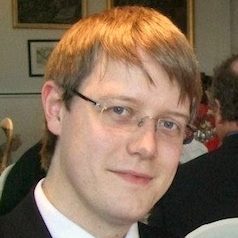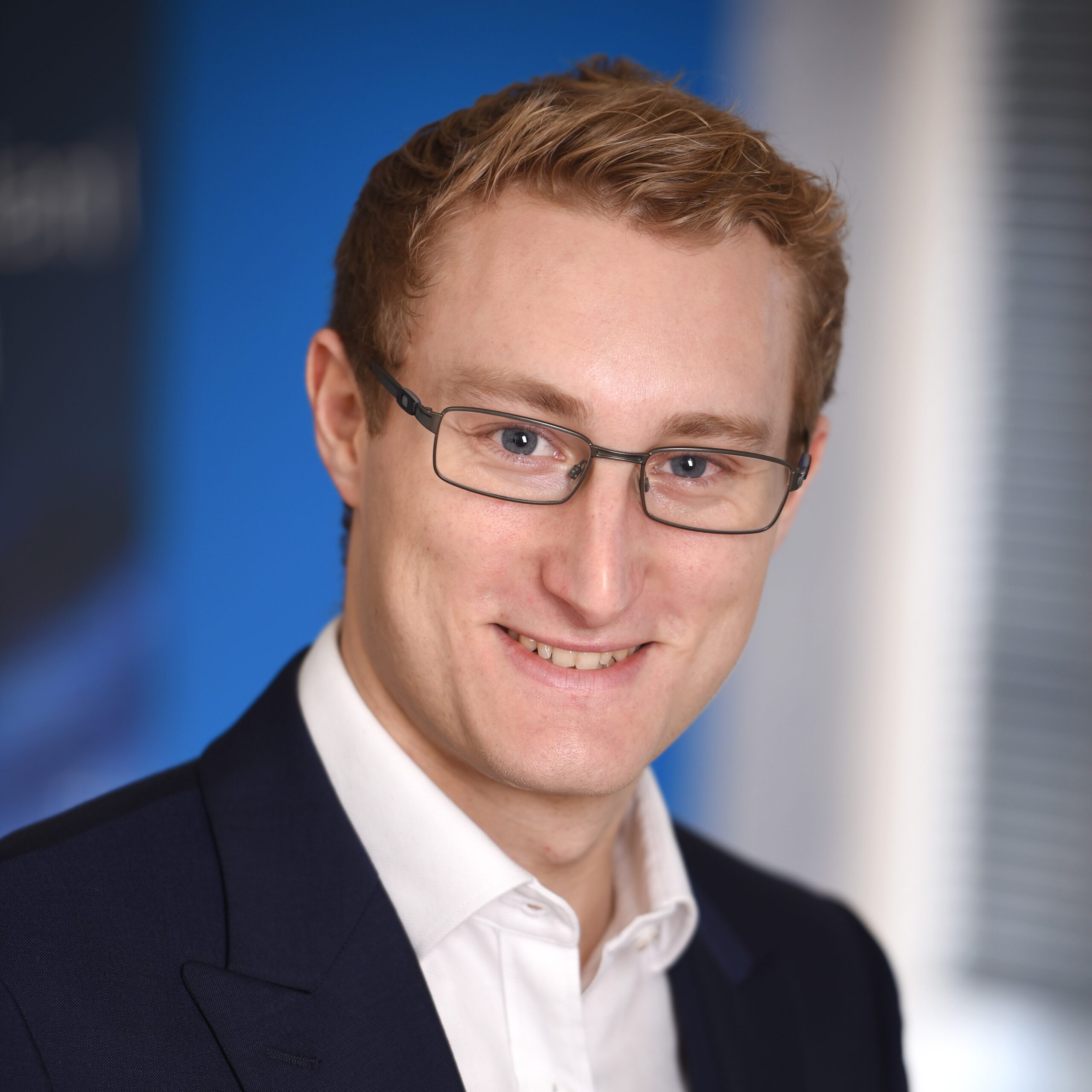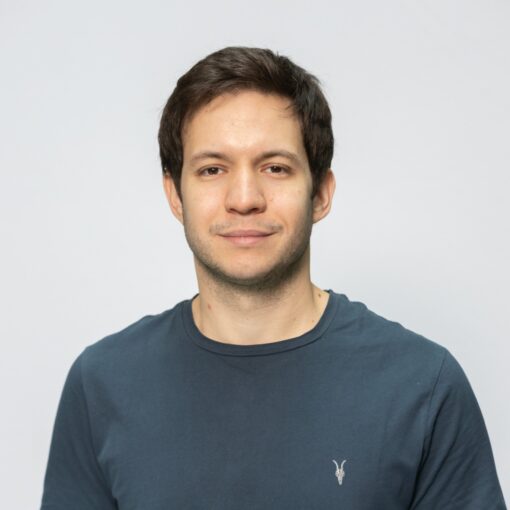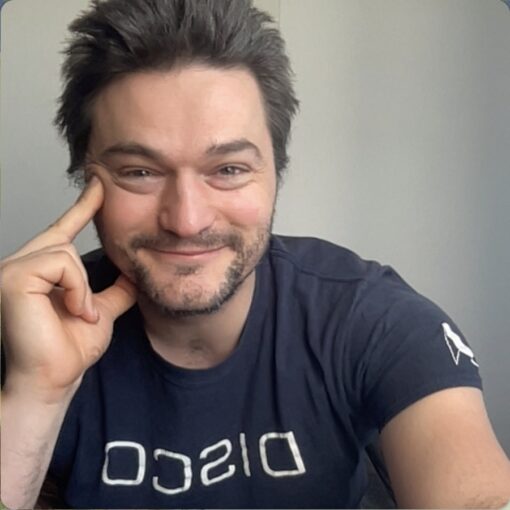PhD in Pure Mathematics, University of Durham (2012)
| Software Consultant | |
|---|---|
| TNG Technology Consulting GmbH | |
Year entered into a non-academic position: 2019
Job highlight: Software Development and Cloud Infrastructure
My research training set me up to… become accustomed to working interdependently at a high level in a technical domain.
Left academia after: 5 years 4 months of post-doctoral work
What’s your background?
I studied mathematics and theoretical physics before starting a PhD in pure mathematics. Thereafter, I held postdoc positions in Switzerland in addition to spending a year at the Max Planck Institute for Mathematics.
Why did you move away from academia?
As my contract as a postdoc came to an end, I had little desire to continue pursuing temporary employment, especially without any guarantee that one or two further such positions would eventually lead to something permanent. In mathematics there appeared to be plenty of competition and so my prospects of obtaining a permanent position seemed to be heavily dependent on luck.
Is there anything you miss about academia?
The daily freedom to work as and when it suits. On the other hand, free time in my current job is guilt-free: there is no nagging sense that the time could be used to do some research that might boost one’s chances of a permanent job. In academia it is slightly easier to feel that one’s work is not just for some private gain, even if rewarding.
How did you get this job? Did you face any challenges when considering a move away from academia or applying for the role?
I was put in contact with the recruiters at TNG through an academic colleague. As the recruiters were very open to someone from my background, applying to TNG posed no particular challenges, other than a single rigorous interview. My profile did not appear to interest other firms (in Switzerland at that time) so much, at least if interview invitations were anything to go by. As a pure mathematician, my work was probably not seen by most employers as “relevant” to industry, and many entry-level positions were envisaged for university leavers or those just completing their PhDs.
Despite speaking German and French to respectable levels for a postdoc who mostly worked in English, it seemed hard to attract the attention of some companies. On the other hand, other employers were of the opinion that my German was good enough to build on.
What motivated you to/why did you choose the sector you transitioned into?
I had always been interested in computing, but regretted that it had not played a bigger role in my work as a researcher. I was also interested in IT in general and not just scientific computing.
Did you think you had the skills required for your current position before you started? Were you right?
I believed that I had enough general IT knowledge and the capacity to learn quickly so that I would be able to quickly master whatever I needed. I think that I was mostly right about this, inasmuch as my company is very supportive of employees not coming from an IT background, in providing all the necessary training and free time for personal learning.
How did your PhD prepare you for your current job? For example, what were the transferable skills that you developed during your PhD that are most relevant to your current job?
Arguably, what is relevant to work outside of academia is not just what one has learned during one’s PhD, but also one’s qualities as a person. In order to obtain a PhD one must have talent, interest, motivation, tenacity, and resilience. The experience of working independently (or, during the PhD, under a supervisor’s guidance) at a high level on a technical topic does however help to develop these qualities and skills.
Conducting research in mathematics requires an ability to quickly learn and understand complex technical ideas and concepts, as well as refine and make precise statements. Writing about these ideas also requires careful precision in order to communicate them clearly.
As a researcher, I had the occasion to give talks and lectures, which is a very useful experience to take to any working environment.
Did you have any preconceptions about your sector that proved to be wrong?
I didn’t imagine that I might spend time discussing in great detail the finer points of programming languages, or have colleagues that also appreciated that level of discussion. In academia there is sometimes a perception that there is nothing interesting or worthwhile to be discussed to a deeper level in the outside working world.
Can you describe a typical week in your job?
In agile software development, our work follows two-week cycles called sprints. In a week where a sprint ends and another starts, there may be several meetings in which we essentially discuss forthcoming work and plan how it will be tackled. In the other weeks there are generally fewer meetings.
At TNG we are assigned a single client project, on which we work most of the time, in most cases for many months at a time. It is usual to be based primarily in a client’s office with several other colleagues from TNG. My work will then involve a range of activities around software development, which may involve pure programming (e.g., in Java/C#/JavaScript/TypeScript/Python), “operations” activities like managing software pipelines, setting up cloud infrastructure, or writing documentation. Two days per month are reserved as TechDays, which amount to free days on which I am able to attend internally-organised workshops and talks, or pursue any relevant activities such as reading, online courses, or open source projects. This sort of time seems to be less typical outside of academia.
What is the workplace culture like? Please include comments on work-life balance, flexibility, remote working?
The workplace culture at TNG itself is very relaxed. Most consultants effectively work for a client most of the time and workplace cultures there vary. Some clients will be very flexible, but others will expect standard working hours to be kept, and we try to accommodate clients’ requests. Even in early 2020, before other firms had realised the implications of Covid-19, TNG was already organising remote work for all its consultants. One expects remote work to at least partially remain in many sectors, even when a return to offices becomes possible.
Outside work I am able to enjoy free time without worrying (as I did in academia) that I should be doing something productive that will boost my career. Fortunately, I do not have an employer that insists on extra hours, as I believe is common in some sectors.
Do people with a PhD frequently get hired in the company/sector?
Yes, in the company at least. Something like 60% of our employees have a PhD, the vast majority of which are in physics, computer science, and mathematics.
What are your favourite parts of your job?
Programming and working with cloud infrastructure. But also writing a, giving talks and organising workshops. This already covers quite a lot of my activities.
What are your reflections on your career path?
I do not regret either doing a PhD or having had two or three postdocs. I do regret not having a more concrete “Plan B”: such a plan might have allowed me to enjoy my time as a postdoc more, and spend less time worrying about the future.
Do you have any advice for current graduate students and postdocs considering a career outside of academia?
Have a Plan B (see above). Many employers like to see evidence of internships, or in the IT world, evidence of an ability to program. If as a mathematics or physics researcher you have the opportunity to do computing-related work, then this could serve well as a way into related work.
What do you know now that you wish you’d known when exploring a transition?
Even though PhD-holders in mathematics are sought after, it can be difficult to stand out as having the right skills in the eyes of employers.
 TNG Technology Consulting is a value-based consulting partnership focused on high end information technology. TNG provides services in three main areas: Agile Software Development, Artificial Intelligence and DevOps & Cloud. In each area, we work both as implementors and consultants. We have a great demand for new employees with high professional qualifications as well as passion and enthusiasm for IT. According to the different services we offer, our employees typically focus on one or more of the areas, depending on their interests and skills. Nevertheless, applicants do not need to decide on one of these areas at the time of application.
TNG Technology Consulting is a value-based consulting partnership focused on high end information technology. TNG provides services in three main areas: Agile Software Development, Artificial Intelligence and DevOps & Cloud. In each area, we work both as implementors and consultants. We have a great demand for new employees with high professional qualifications as well as passion and enthusiasm for IT. According to the different services we offer, our employees typically focus on one or more of the areas, depending on their interests and skills. Nevertheless, applicants do not need to decide on one of these areas at the time of application.
Most new colleagues start at TNG either directly after graduating from university or completing their doctoral studies, or after gaining some work experience. Newcomers tend to start as software consultants, developing software and offering advice to clients. However there is also the possibility to undertake an internship or work as a “working student” with TNG.
As we do not recruit for specific projects, we do not have any focus on individual technologies or programming languages. For us, the aim for constant personal growth and the enthusiasm to learn something new are far more important than having years of experience in a specialized field. On the other hand, the degree of implementation work is quite high in our business, so some development experience definitely will not hurt.
There are several reasons for people with a strong research background turning out to be very happy at TNG: there is a constant need to learn new things, a wide variety of areas to which you can apply your knowledge, a lot of hands-on implementation and a highly skilled team of colleagues around. It is not so much the specific research topic that one has focused on that counts for TNG. Rather, the meta-skills are the things that are highly valued: Being able to organize yourself, focusing on specific details while still keeping an eye on the big picture, solving hard problems, dealing with different stakeholders and a constant and high motivation to learn and develop new things.
Please find more information on our company website: https://www.tngtech.com/en/





